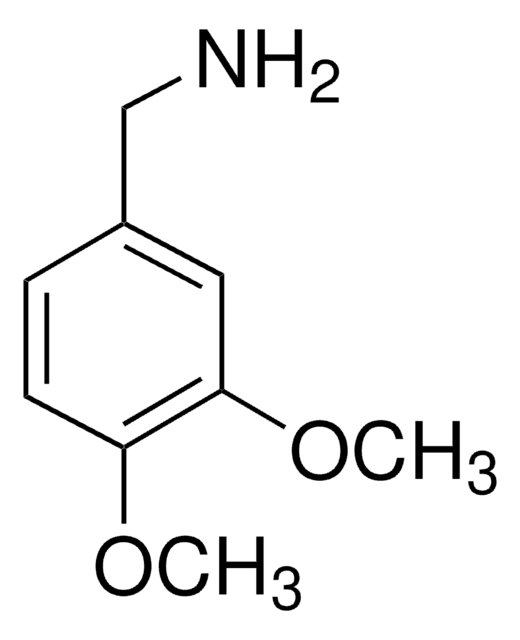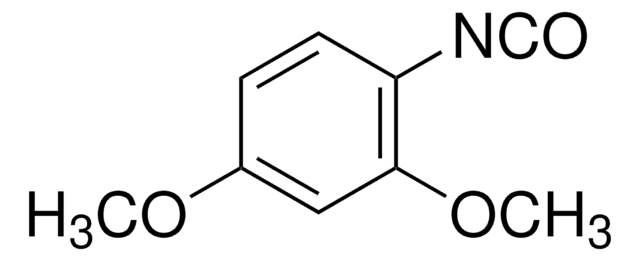432725
2,4-Dimethoxybenzylamine
98%
Synonym(s):
(2,4-Dimethoxyphenyl)methanamine, 1-(2,4-Dimethoxyphenyl)methanamine, 2,4-Dimethoxybenzenemethanamine, 2,4-Dimethyloxybenzylamine, [(2,4-Dimethoxyphenyl)methyl]amine
About This Item
Recommended Products
assay
98%
refractive index
n20/D 1.549 (lit.)
bp
140 °C/1 mmHg (lit.)
density
1.113 g/mL at 25 °C (lit.)
SMILES string
COc1ccc(CN)c(OC)c1
InChI
1S/C9H13NO2/c1-11-8-4-3-7(6-10)9(5-8)12-2/h3-5H,6,10H2,1-2H3
InChI key
QOWBXWFYRXSBAS-UHFFFAOYSA-N
General description
Application
- As an ammonia equivalent in the concise synthesis of a series of 2,4,5-trisubstituted oxazoles, via a tandem Ugi/Robinson-Gabriel reaction sequence.
- Total synthesis of (-)-muraymycin (MRY) D2 and its epimer, the antibacterial nucleoside natural product.
- Two-step synthesis of amide derivatives of uracil polyoxin C (UPOC) methyl ester using the Ugi reaction.
- Synthesis of N-hydroxythiourea.
- Synthesis of anti-HIV-1 agents.
signalword
Danger
hcodes
Hazard Classifications
Eye Dam. 1 - Skin Corr. 1B
Storage Class
8A - Combustible corrosive hazardous materials
wgk_germany
WGK 3
flash_point_f
235.4 °F - closed cup
flash_point_c
113 °C - closed cup
ppe
Faceshields, Gloves, Goggles, type ABEK (EN14387) respirator filter
Certificates of Analysis (COA)
Search for Certificates of Analysis (COA) by entering the products Lot/Batch Number. Lot and Batch Numbers can be found on a product’s label following the words ‘Lot’ or ‘Batch’.
Already Own This Product?
Find documentation for the products that you have recently purchased in the Document Library.
Customers Also Viewed
Our team of scientists has experience in all areas of research including Life Science, Material Science, Chemical Synthesis, Chromatography, Analytical and many others.
Contact Technical Service












